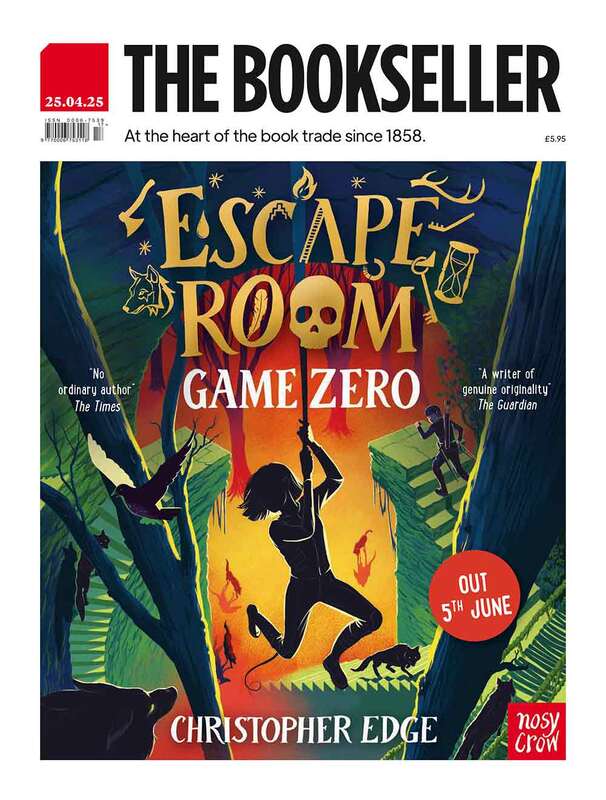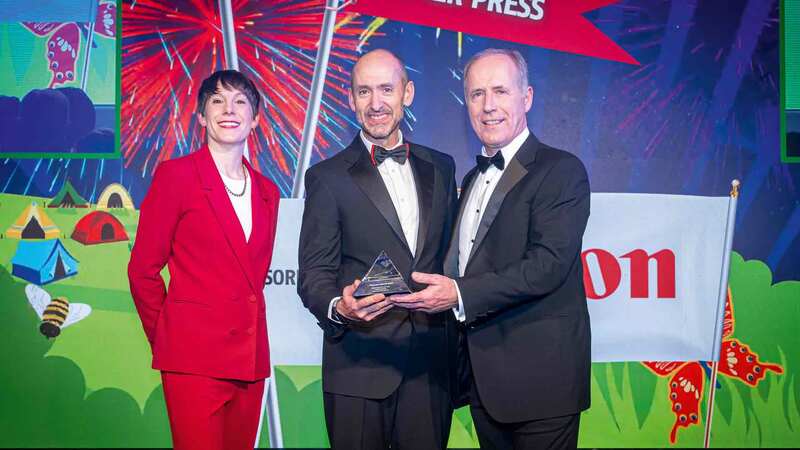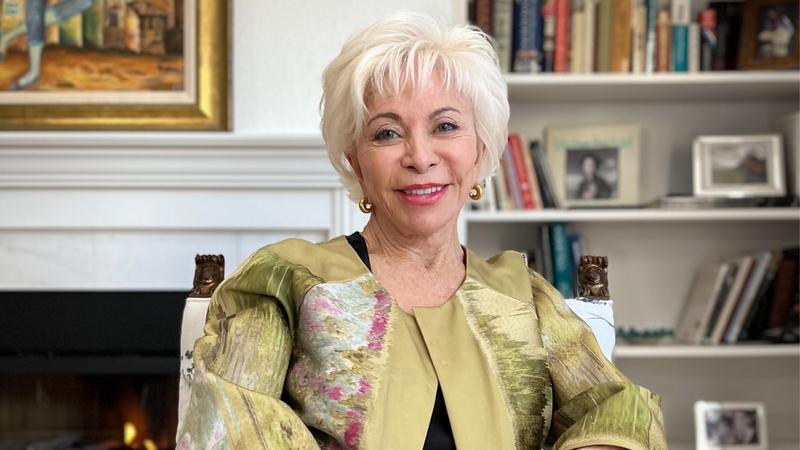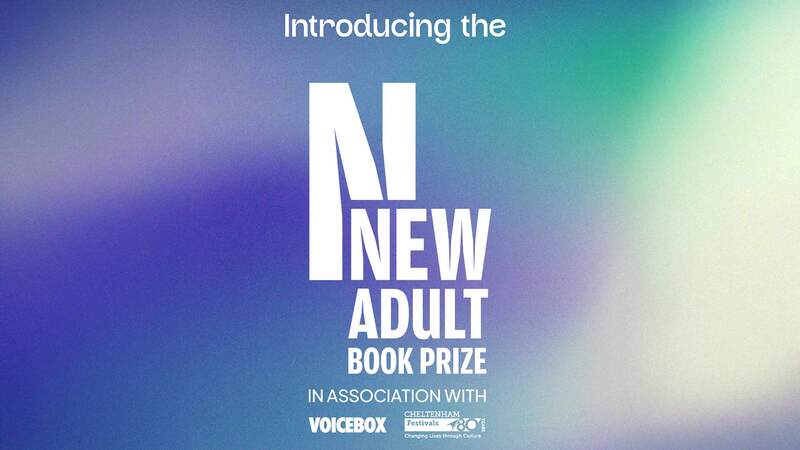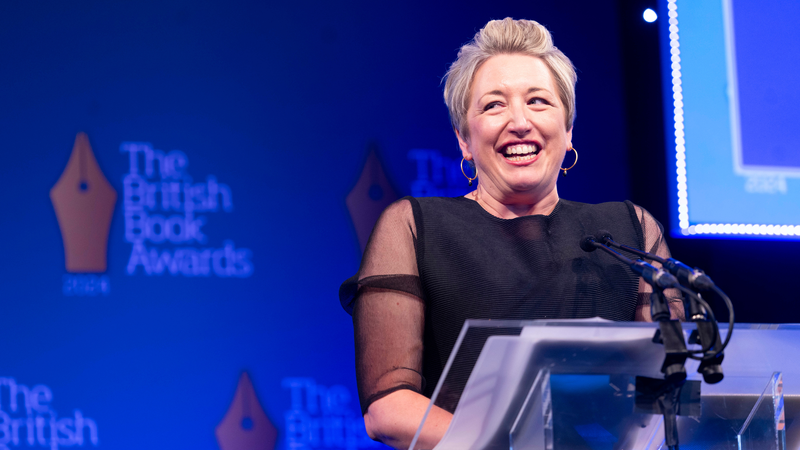You are viewing your 1 free article this month. Login to read more articles.
Welsh, Robertson and Kay on 2018 Saltire Literary Awards shortlists
Trainspotting creator Irvine Welsh, Man-Booker shortlisted Robin Robertson and poet Jackie Kay feature alongside emerging talents Mick Kitson and Christina Neuwirth in the shortlists for the 2018 Saltire Literary awards (each worth £2,000).
The shortlists for six literary awards and two publishing awards [detailed in full below] were revealed at an event hosted at the West End branch of Waterstones in Edinburgh on Monday evening (22nd October). The winning book from each of these awards will go on to compete for the Saltire Society Scottish Book of the Year Award (£6,000), supported by Creative Scotland.
Also announced at this ceremony in November will be the winner of a special award, “Most Inspiring Saltire First Book Award Winner”, to mark 30 years since the First Book Award was established in 1988, and including such luminaries as Michel Faber and Ali Smith The award will be decided by public vote and voting is open now on the Saltire Society website, closing at midnight on Monday 5th November.
The shortlists for two publishing awards in partnership with Publishing Scotland were also revealed: the Publisher of the Year Award category (£1,000),and the Emerging Publisher of the Year Award, which features two members of the Canongate Books team. The winner receives a prize of £500.
The winners of all the awards will be formally announced at an Edinburgh ceremony on 30th November.
The full shortlists are as follows:
Saltire Society Scottish Fiction Book of the Year Award
Leila Aboulela's Elsewhere, Home, (Saqi Books), a collection of short stories that draws the reader into the lives of immigrants at home and abroad as they forge new identities and reshape old ones; Andrew Crumey's The Great Chain of Unbeing (Dedalus), a collection of short stories ranging across time, from the Renaissance to a globally-warmed future; Sally Magnusson's historical novel The Sealwoman's Gift (Two Roads), telling of Barbary pirates abducting inhabitants of Iceland in 1627; Manda Scott's A Treachery of Spies (Transworld), dealing with an elderly woman murdered in France, in the manner of traitors to the Resistance during World War Two; Helen Sedgwick's The Growing Season (Harvill Secker), a novel about motherhood via a biotech baby pouch and a sinister healthcare organisation called FullLife; and Irvine Welsh's Dead Men's Trousers (Jonathan Cape), featuring the return of the crew from Trainspotting.
Saltire Society Scottish Non-Fiction Book of the Year Award
Alan Taylor's Appointment in Arezzo, (Polygon), a memoir of encounters and letter exchanges with Muriel Spark, published to celebrate the 100th anniversary of her birth; Professor Sue Black's All That Remains: A Life in Death (Transworld), an exploration of forensic science through her own work as professor of anatomy and forensic anthropology; Angus Roxburgh's Moscow Calling (Birlinn), a memoir from the former correspondent and media consultant to Putin's Kremlin; Joseph Farrell's Robert Louis Stevenson in Samoa (MacLehose), the story of the writer's last years on Samoan island Upolu; Mark Cousins' The Story of Looking (Canongate), a tour of words and images that explores how our looking selves develop over the course of a lifetime; and Richard Holloway's Waiting for the Last Bus (Canongate). an exploration of the many important lessons we can learn from death.
Saltire Society Scottish Poetry Book of the Year Award
Sophie Collins' Who is Mary Sue? (Faber), said to expose the the presumptive politics behind writing and readership: the idea that men invent while women reflect; that men write of the world outside while women turn to the interior; Jackie Kay's Bantam (Picador), exploring three generations, Kay’s own, her father’s, and his own father’s; Roddy Lumsden's 10th collection, So Glad I'm Me (Bloodaxe); Robin Robertson's Man Booker shortlisted novel-in-verse The Long Take; and Jay Whittaker's Wristwatch (Cinnamon Press), charting a course through cancer treatment and recovery, and becoming a widow at 44.
Saltire Society Scottish Research Book of the Year Award, supported by the National Library of Scotland
Early Cinema in Scotland by John Caughie, Trevor Griffiths and María A. Vélez-Serna (Edinburgh University Press), a collection of essays; Tom Mole's What the Victorians Made of Romanticism: Material Artifacts, Cultural Practices, and Reception History (Princeton University Press), examining how the popular media of the Victorian era sustained and transformed the reputations of Romantic writers; Tea and Empire: James Taylor in Victorian Ceylon by Angela McCarthy and Sir Tom Devine, (Manchester University Press), the story of the 19th century 'father of the Ceylon tea enterprise'; and Literature and Union: Scottish Texts, British Contexts by Gerard Carruthers and Colin Kidd, (Oxford University Press), a study of ideas of union within the Scottish literary tradition from the early modern period to the present.
Saltire Society Scottish History Book of the Year Award, supported by the Scottish Historical Review Trust
Michael Anderson's Scotland's Populations from the 1850s to Today (Oxford University Press)., a "comprehensive and well-balanced analysis" of Scottish population history; Edward Corp's biography Sir David Nairne: The Life of a Scottish Jacobite at the Court of the Exiled Stuarts (Peter Lang); Cairns Craig's The Wealth of the Nation: Scotland, Culture and Independence (Edinburgh University Press), a study of how Scottish culture defined itself within the British Empire; J H Elliott's Scots & Catalans, (Yale), a comparative study of the Scottish and Catalan experiences across a five-hundred-year period; Valerie Wallace's Scottish Presbyterianism and Settler Colonial Politics: Empire of Dissent (Palgrave Macmillan), a new interpretation of political reform in the settler colonies of Britain’s empire in the early 19th century; Ronald Lyndsay Crawford's The Chair of Verity : Political preaching and pulpit censure in eighteenth-century Scotland (Humming Earth), the first major study of the phenomenon of political preaching in Scotland during the age of Enlightenment; and Les Wilson's The Drowned and the Saved (Birlinn), telling of two ships carrying American soldiers were sunk off the coast of Islay in 1918.
Saltire Society Scottish First Book of the Year Award
Alex Boyd's St Kilda: The Silent Islands (Luath), a photography book said to "capture the reality of St Kilda" including the Ministry of Defence presence; Mick Kitson's debut novel Sal (Canongate), described as a heartwarming story about the end of childhood, the strength of a sister’s love and the power of nature to heal even the deepest wounds; Christina Neuwirth's Amphibian (Speculative Books), telling of Rose Ellis who arrives at work one morning to find that the entire fourth floor has been flooded with water, in a desperate attempt to improve productivity; and Calum L MacLeòid's A' Togail an t-Srùbain (CLÀR), a psychological thriller about a man who discovers a body among the seaweed while cockle-picking.
Most Inspiring Saltire Society Scottish First Book Award Winner
Kate Clanchy , winner of the First Book Award in 1996 for Slattern; Michel Faber – winner of the First Book Award in 1999 for Some Rain Must Fall; Jackie Kay – winner of the First Book Award in 1992 for The Adoption Papers; A L Kennedy – winner of the First Book Award in 1991 for Night Geometry and the Garscadden Trains; Ali Smith – winner of the First Book Award in 1995 for Free Love and Other Stories; and Louise Welsh – winner of the First Book Award in 2002 for The Cutting Room.
Saltire Publisher of the Year Award supported by Publishing Scotland
404 Ink, BHP Comics, Birlinn, Canongate, Historic Environment Scotland and Luath Press.
Saltire Emerging Publisher of the Year Award supported by Publishing Scotland
Alan Windram (Little Door Books); Carolina Orloff (Charco Press); Charlotte Brady (Canongate); Heather Palmer (BHP Comics); James T Harding (Stewed Rhubarb Press); and Megan Reid (Canongate).

